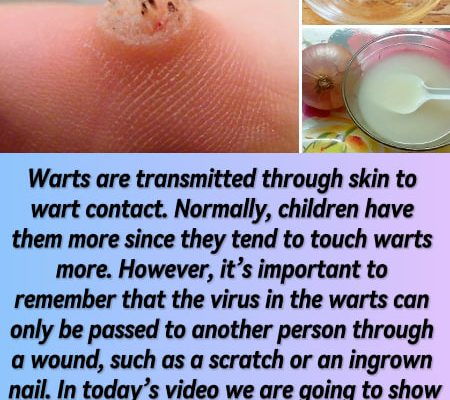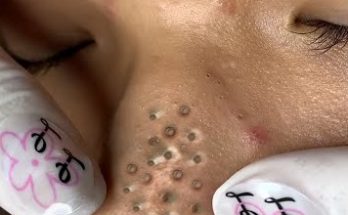Warts are common, benign skin growths caused by the human papillomavirus (HPV).1 While they often resolve on their own as your immune system fights off the virus, some people choose to treat them, and there are several natural remedies that have been anecdotally used.2 However, it’s important to note that scientific evidence for many natural remedies is limited, and results can vary.3

Before trying any natural remedy, especially if you have a compromised immune system, diabetes, poor circulation, or if the wart is on your face or genitals, consult a doctor. Self-treating these types of warts can be risky.4
Here are some commonly discussed natural remedies for warts, along with considerations:
1. Salicylic Acid (from natural sources or OTC products):5
- How it works: Salicylic acid is a “keratolytic,” meaning it helps to dissolve and peel away layers of the wart.6 Many over-the-counter (OTC) wart removers contain salicylic acid in various forms (gels, liquids, patches).7 Aspirin contains salicylic acid, and some people crush aspirin tablets with water to make a paste.8
- How to use: Typically, you soak the wart in warm water for 5-10 minutes to soften it.9 Then, gently file the wart with an emery board or pumice stone (dispose of it afterward to prevent spreading).10 Apply the salicylic acid product or aspirin paste directly to the wart, avoiding surrounding healthy skin (you can protect healthy skin with petroleum jelly).11 Cover with a bandage or duct tape. Repeat daily.
- Considerations: This method requires patience and consistency, often taking several weeks to months to see results.12 It can cause mild irritation, redness, or peeling.13 Stop if you experience significant pain, bleeding, or blistering
2. Duct Tape Occlusion:
- How it works: The theory behind this method is that covering the wart with duct tape suffocates it, irritates the skin (which might stimulate an immune response), or both.
- How to use: Cut a piece of silver duct tape slightly larger than the wart and apply it, ensuring it covers the wart completely. Leave it on for 4-7 days. Then, remove the tape, soak the wart in water, and gently rub it with a pumice stone or emery board to remove dead skin. Leave the wart uncovered for 12 hours (or overnight), then reapply new duct tape.14 Repeat this cycle for several weeks to months.
- Considerations: Evidence for duct tape’s effectiveness is conflicting. Some studies show it’s comparable to salicylic acid, while others find limited evidence. It’s generally considered safe to try.
3. Apple Cider Vinegar (ACV):
- How it works: ACV is acidic and is thought to work similarly to salicylic acid by gradually breaking down the wart tissue. It also has mild antimicrobial properties.
- How to use: Dilute ACV with water (e.g., 1 part ACV to 1 or 2 parts water). Soak a cotton ball in the diluted mixture, place it on the wart, and secure it with a bandage. Leave it on for a few hours daily, or overnight for a stronger effect. Rinse the area afterward.
- Considerations: ACV can cause burning, irritation, and even chemical burns if used undiluted or left on for too long, especially on sensitive skin.15 Discontinue use if you experience significant discomfort. There’s limited strong scientific evidence to support its effectiveness for warts.
4. Garlic:
- How it works: Garlic contains allicin, which has antiviral and antimicrobial properties.16
- How to use: Crush a fresh garlic clove to release the juice and apply it directly to the wart.17 Cover with a bandage. Repeat daily.
- Considerations: Some studies, though often older or small, have suggested garlic extract can be effective.18 It can cause skin irritation or blistering for some individuals.19
5. Tea Tree Oil:
- How it works: Tea tree oil has antimicrobial and anti-inflammatory properties.20
- How to use: Dilute a few drops of pure tea tree oil with a carrier oil (like coconut or jojoba oil) in a 1:10 ratio (1 part tea tree oil to 10 parts carrier oil). Apply the diluted mixture to the wart with a cotton swab 2-3 times a day.
- Considerations: Tea tree oil can be irritating, especially if used undiluted.21 Always perform a patch test on a small area of skin first. Limited scientific evidence specifically supports its effectiveness for warts.
6. Boosting Your Immune System:
- How it works: Warts are caused by a virus, so a strong immune system is your body’s best defense against them.22
- How to do it:
- Healthy Diet: Focus on a diet rich in fruits, vegetables, and whole grains, which provide essential vitamins, minerals, and antioxidants.23
- Adequate Sleep: Sufficient sleep supports immune function.24
- Regular Exercise: Helps boost overall health and immunity.
- Stress Management: Chronic stress can suppress the immune system.25
- Consider Supplements: Some people consider supplements like zinc, vitamin C, or echinacea, though evidence for their direct impact on wart clearance is varied.
Other remedies that have less scientific backing or are purely anecdotal:
- Banana Peel: Rubbing the inside of a banana peel on the wart.26
- Aloe Vera: Applying fresh aloe vera gel.27
- Pineapple Juice: Soaking the wart in pineapple juice.28
- Clear Nail Polish: Believed to suffocate the wart.29
Risks and When to See a Doctor:
- Ineffectiveness: Many natural remedies may not work for everyone, and warts can be stubborn.30
Irritation and Burns: Acids (like ACV) and essential oils (like tea tree oil) can cause skin irritation, redness, blistering, or even chemical burns if not used correctly or diluted properly.
- Spreading the Virus: Picking, scratching, or improperly filing warts can spread the HPV virus to other parts of your body or to other people.31
- Infection: Breaking the skin around a wart can lead to bacterial infection.32
- Misdiagnosis: What you think is a wart might be something else (e.g., a mole, skin tag, or even skin cancer). A doctor can provide an accurate diagnosis.
- Persistent Warts: If a wart is painful, bleeds, changes in appearance, grows rapidly, or doesn’t respond to home treatments after a few weeks or months, see a doctor.33
- Warts on Sensitive Areas: Never attempt to treat warts on your face, genitals, or mucous membranes with home remedies. Seek professional medical advice for these areas.
While you can try natural remedies, it’s always safest to consult a healthcare professional for a proper diagnosis and treatment plan, especially for persistent or concerning warts. They can offer more effective and proven treatments like cryotherapy (freezing), stronger salicylic acid preparations, or other medical procedures.


